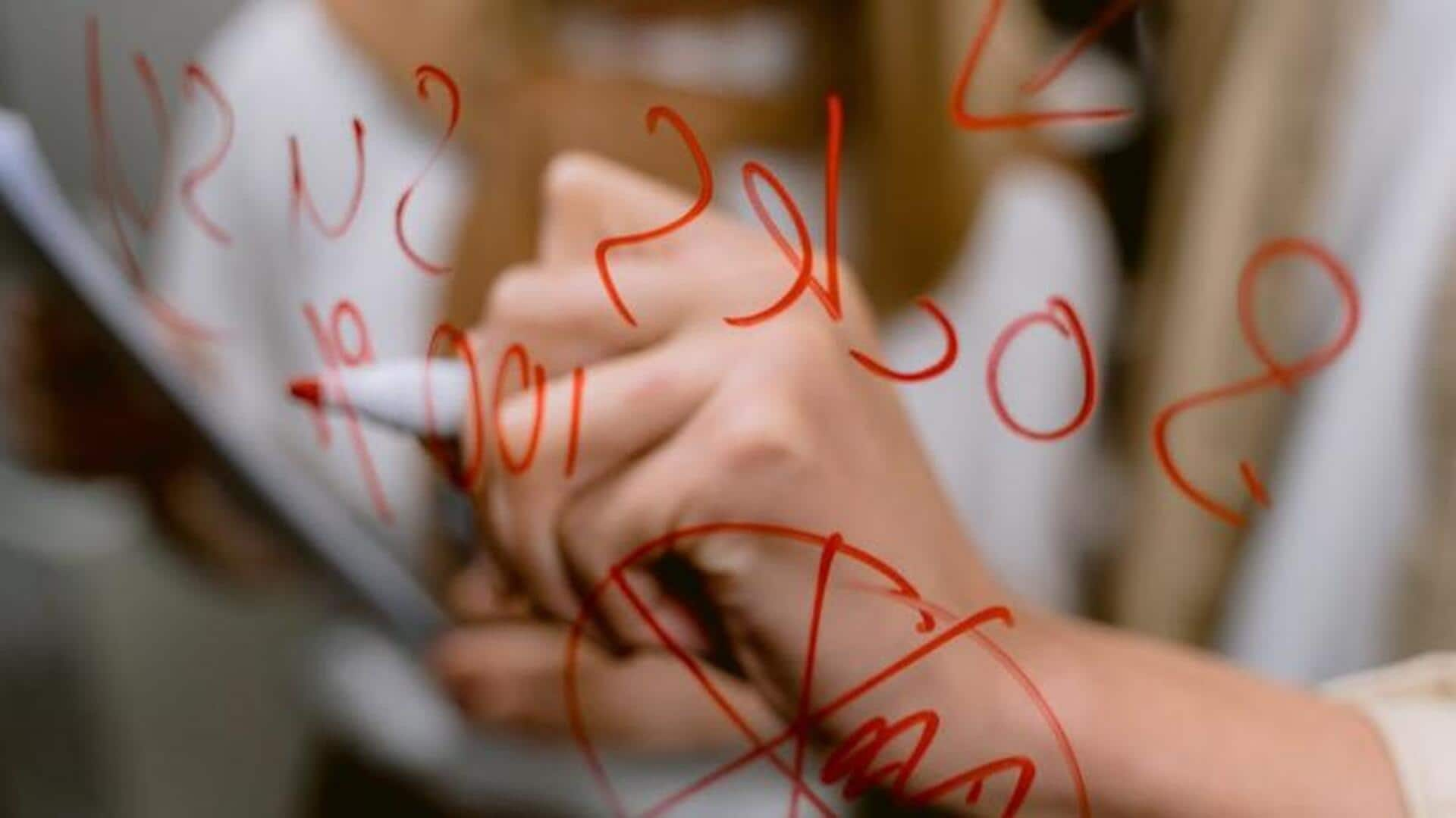
Mirror writing: A simple tool for improving focus
What's the story
Mirror writing, writing in reverse so that it looks normal in a mirror, can be a fascinating exercise for your mind.
The practice activates other parts of the brain, providing cognitive benefits.
By challenging the way you think and write, mirror writing can bring out creativity and improve mental flexibility.
Here are some ways you can include this activity in your routine for improved mental health.
Basic practice
Start with simple words
Start your mirror writing journey with simple words. Pick easy-to-spell words and write them backward on a paper.
This first step ensures that you get used to the reversed motion involved in mirror writing.
Once you're comfortable with simple words, gradually increase the complexity by adding longer words or phrases.
Visual aid
Use a mirror for feedback
Using a mirror as a tool gives you an immediate feedback on your progress.
Write on paper and hold it up to a mirror to see how accurately you've mirrored the text.
This visual aid helps you identify areas where you need improvement and reinforces learning through instant correction.
Consistent routine
Incorporate daily practice
The most important part of mastering mirror writing is incorporating daily practice into your routine.
Spend five to ten minutes every day on this task, increasing the time as you get better at it.
Consistency is key in developing new skills and improving cognitive abilities over time.
Ambidextrous exercise
Engage both hands alternately
Practicing mirror writing with both hands, alternately, can supercharge your brain's activity.
By switching hands every few minutes on your practice sessions, you get an ambidextrous exercise that activates multiple neural pathways.
This would not just make you mentally agile, but also improve coordination between the brain's hemispheres.
It's a unique way to challenge your brain, improving cognitive flexibility and developing new skills.
Advanced practice
Challenge yourself with complex sentences
Once you're comfortable with basic words and phrases, move on to complex sentences or paragraphs written in reverse.
This step up not only demands greater focus but also significantly boosts your cognitive functions.
Engaging in this advanced practice enhances your problem-solving abilities and memory retention.
Over time, these mental exercises contribute to a sharper mind and improved cognitive flexibility.